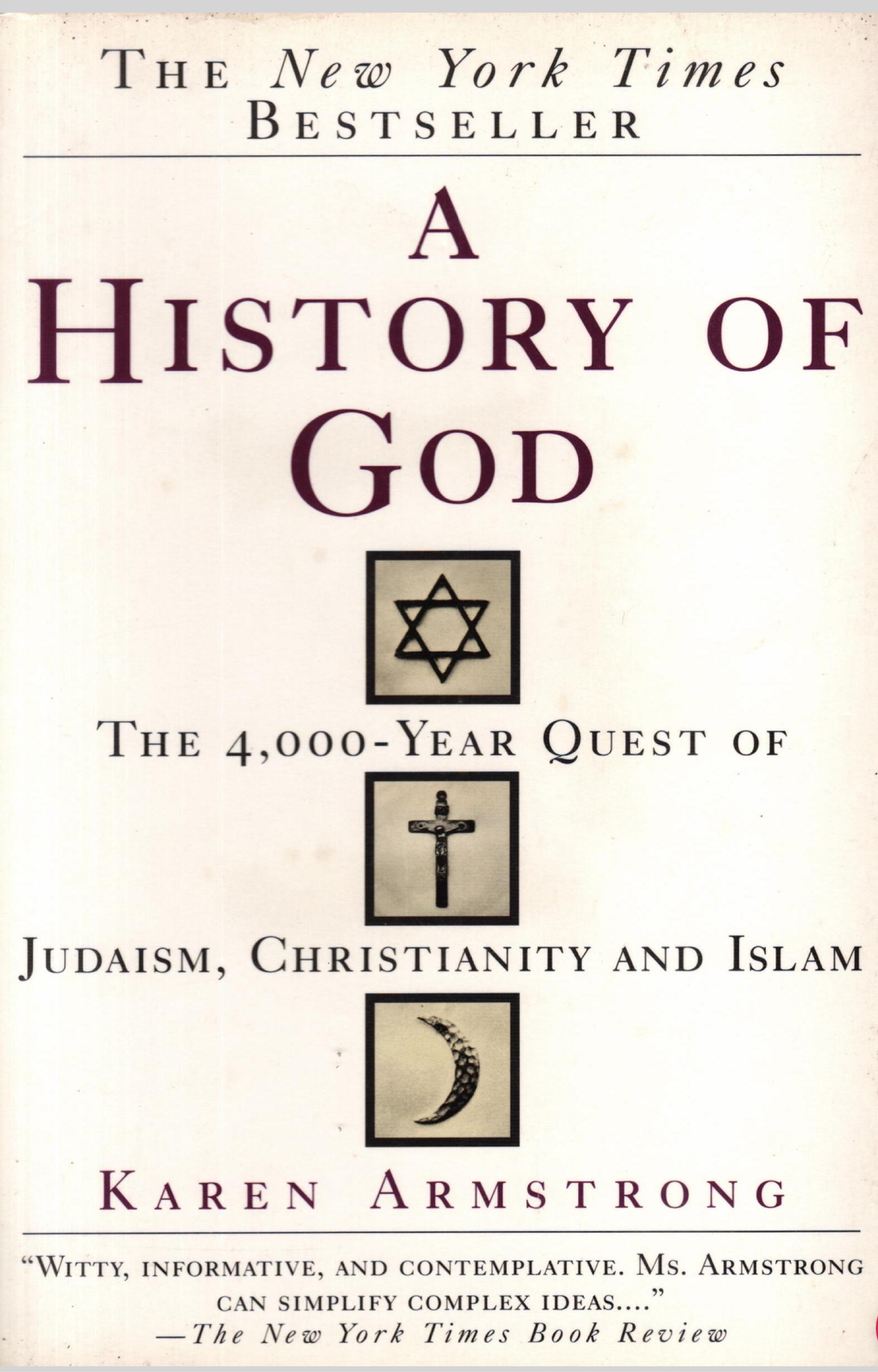A HISTORY OF GOD
A History of God: The 4,000-Year Quest of Judaism, Christianity, and Islam by Karen Armstrong is a historical and theological exploration of the concept of God in the three major monotheistic religions—Judaism, Christianity, and Islam. Armstrong, a former nun and respected scholar of religion, examines how the idea of God has evolved over time, shaped by cultural, political, and philosophical influences.
Overview & Key Themes
1. Origins of Monotheism
• The book begins with early conceptions of divinity in the ancient Near East, particularly how the Hebrew God, Yahweh, emerged from a polytheistic environment.
• It explores the evolution of monotheism in Judaism, Christianity, and Islam, emphasizing how each tradition shaped and was shaped by its historical context.
2. Jewish, Christian, and Islamic Perspectives
• Judaism: The transformation of Yahweh from a tribal deity to a universal God, particularly through the influence of the Babylonian Exile and Rabbinic thought.
• Christianity: The theological shifts that led to the divinization of Jesus, early debates about his nature, and the impact of Greek philosophy (e.g., Neoplatonism).
• Islam: The emergence of Allah as the central divine figure, the role of Muhammad, and the influence of Sufism and rationalist philosophy.
3. Philosophy & Mysticism
• Armstrong explores how Greek philosophy, particularly the works of Plato and Aristotle, influenced Jewish, Christian, and Islamic theology.
• She discusses mystical traditions such as Kabbalah (Judaism), Christian Mysticism, and Sufism (Islam) and how they conceptualized God beyond traditional theological doctrines.
4. The Enlightenment & Secularism
• The rise of scientific rationalism and secularism in the modern era challenged traditional religious beliefs.
• Armstrong examines atheism as a response to changing perceptions of God, especially in the wake of events like the Scientific Revolution and Enlightenment.
5. Modern Perspectives & the Future of God
• The book concludes with a discussion on contemporary religious thought and how faith must adapt to modern challenges.
• Armstrong argues that religion is not static and that the concept of God continues to evolve with human history.
Why Read This Book?
• Provides a comprehensive historical account of how the Abrahamic faiths have understood God.
• Offers insightful comparisons between Judaism, Christianity, and Islam.
• Challenges rigid, fundamentalist interpretations by showing the fluidity of religious thought.
• Encourages a nuanced understanding of both theism and atheism.
Reception & Criticism
• A History of God has been praised for its accessible writing style, depth of research, and balanced approach to different religious traditions.
• Some critics argue that Armstrong downplays doctrinal differences and leans towards a more mystical and metaphorical view of God rather than addressing literalist interpretations.
• It remains one of the most influential books on religious history and is often recommended for anyone interested in theology, philosophy, or interfaith dialogue.
